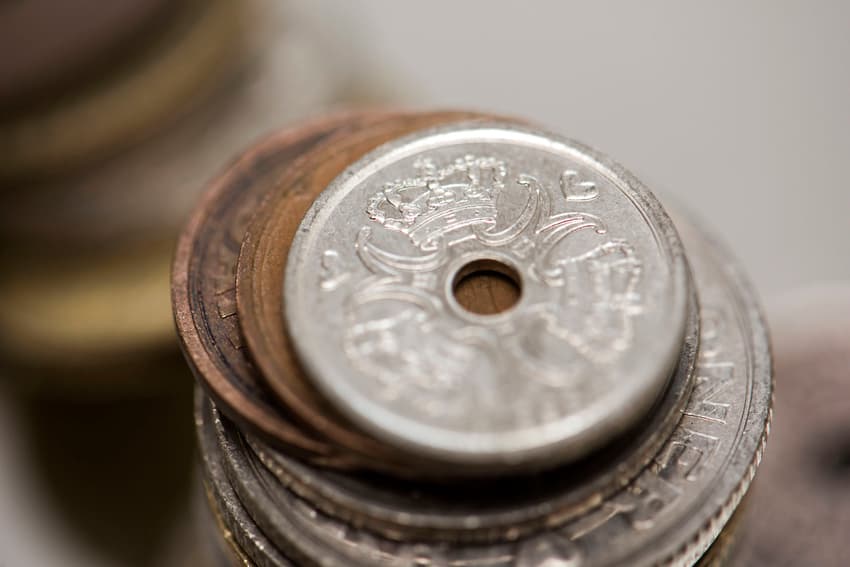Why did wages in Denmark increase during the Covid-19 pandemic?

Wages in Denmark increased by an average of 7.3 percent between 2019 and 2021, new data from Statistics Denmark reveals.
Denmark’s labour market is still offering increasing wages as the demand for labour is high, with employment levels correspondingly high.
The average income in the country of 346,000 kroner per year in 2019 increased to 371,000 kroner in 2021.
The numbers are corrected for price changes, Statistics Denmark states.
Increasing employment is a key part of the explanation for the rise in average salaries, but some attribution can also be given to a 2020 government decision to release funding from the national holiday pay scheme, according to an analyst.
The decision was one of a number of measures aimed at bolstering the economy through Covid-19 lockdowns and restrictions.
Similarly, a tax-free one-off sum of 1,000 kroner was paid in 2020 to people receiving social welfare benefits such as unemployment insurance and parental leave.
But “even if we disregard the holiday money payouts, there has been a large increase in incomes,” Allan Sørensen, senior economist with business interest organisation the Confederation of Danish Industry (Dansk Industri, DI), said to news wire Ritzau.
The average income in Denmark has increased every year since 2012.
This does not mean that people in Denmark have larger disposable incomes than they had a decade ago, senior economist Niklas Praefke of the Ledernes Hovedorganisation, an interest group for managers and executives, told Ritzau.
“Inflation has, in a short amount of time, exploded to the highest level in 39 years and that eats up a large portion of our income. On its own, that will make real incomes for Danes fall significantly this year,” Praefke said.
EXPLAINED: What’s causing the highest inflation rate in Denmark for almost 40 years?
“Not only that, payment of frozen holiday money lapses this year, so that will mean incomes fall further compared with the two previous years,” he noted.
The holiday pay released under the Covid-19 scheme would have been paid to recipients when they retire or leave the Danish labour market, if the intervention had not been made. As such, those who chose to withdraw it early will not receive it when they retire or stop working in Denmark.
Comments
See Also
Denmark’s labour market is still offering increasing wages as the demand for labour is high, with employment levels correspondingly high.
The average income in the country of 346,000 kroner per year in 2019 increased to 371,000 kroner in 2021.
The numbers are corrected for price changes, Statistics Denmark states.
Increasing employment is a key part of the explanation for the rise in average salaries, but some attribution can also be given to a 2020 government decision to release funding from the national holiday pay scheme, according to an analyst.
The decision was one of a number of measures aimed at bolstering the economy through Covid-19 lockdowns and restrictions.
Similarly, a tax-free one-off sum of 1,000 kroner was paid in 2020 to people receiving social welfare benefits such as unemployment insurance and parental leave.
But “even if we disregard the holiday money payouts, there has been a large increase in incomes,” Allan Sørensen, senior economist with business interest organisation the Confederation of Danish Industry (Dansk Industri, DI), said to news wire Ritzau.
The average income in Denmark has increased every year since 2012.
This does not mean that people in Denmark have larger disposable incomes than they had a decade ago, senior economist Niklas Praefke of the Ledernes Hovedorganisation, an interest group for managers and executives, told Ritzau.
“Inflation has, in a short amount of time, exploded to the highest level in 39 years and that eats up a large portion of our income. On its own, that will make real incomes for Danes fall significantly this year,” Praefke said.
EXPLAINED: What’s causing the highest inflation rate in Denmark for almost 40 years?
“Not only that, payment of frozen holiday money lapses this year, so that will mean incomes fall further compared with the two previous years,” he noted.
The holiday pay released under the Covid-19 scheme would have been paid to recipients when they retire or leave the Danish labour market, if the intervention had not been made. As such, those who chose to withdraw it early will not receive it when they retire or stop working in Denmark.
Join the conversation in our comments section below. Share your own views and experience and if you have a question or suggestion for our journalists then email us at [email protected].
Please keep comments civil, constructive and on topic – and make sure to read our terms of use before getting involved.
Please log in here to leave a comment.